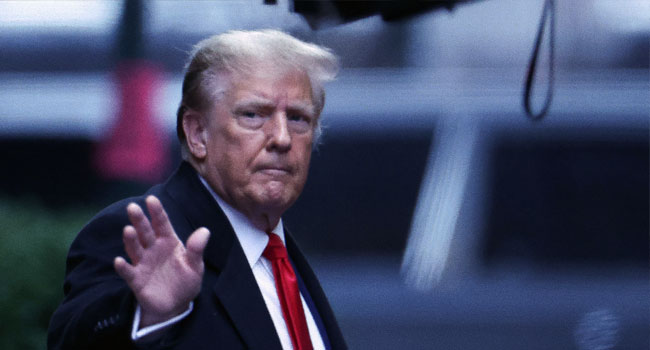
The former president and his co-defendants had been seeking to have District Attorney Fani Willis disqualified — a move which likely would have doomed the racketeering case — following revelations that she had a romantic relationship with her lead prosecutor.
Superior Court Judge Scott McAfee, in a 23-page ruling, said Willis had showed a “tremendous lapse” in judgment but can stay on the case if the man she hired as the special prosecutor, Nathan Wade, steps aside.
Lawyers for Trump and his co-defendants had been seeking to have the entire case dropped because of alleged misconduct by Willis.
They alleged that Willis and Wade had an “improper intimate personal relationship” and that some of the $650,000 Wade was paid to work on the case was used to take Willis on “lavish vacations” including a Caribbean cruise and Napa Valley tour.
Willis has denied she profited financially from the relationship, which she said began after she hired Wade to work on the high-profile case.
The allegations of misconduct against Willis threatened to torpedo the Georgia case against Trump, who is also facing federal charges of conspiring to overturn the results of the November 2020 election won by Democrat Joe Biden.
Willis has asked for the trial of the former president and his 14 co-defendants to begin on August 5, three months before the November presidential election, but the judge has not yet agreed to an August start date.
Trump, the Republican presidential candidate, has pleaded not guilty to charges of involvement in a criminal conspiracy to overturn the 2020 election result in Georgia, where Biden won by some 12,000 votes.
Four co-defendants, including three former Trump campaign lawyers, have pleaded guilty already to lesser charges in deals that spared them any prison time.
Others indicted in Georgia include former New York mayor Rudy Giuliani, Trump’s former White House chief of staff Mark Meadows, John Eastman, a constitutional lawyer, and Jeffrey Clark, a mid-level Justice Department official.
Trump’s federal case on charges of conspiring to overturn the results of the 2020 election had been scheduled to start on March 4 but has been frozen as the Supreme Court considers Trump’s claim that as a former president he enjoys immunity from criminal prosecution.







